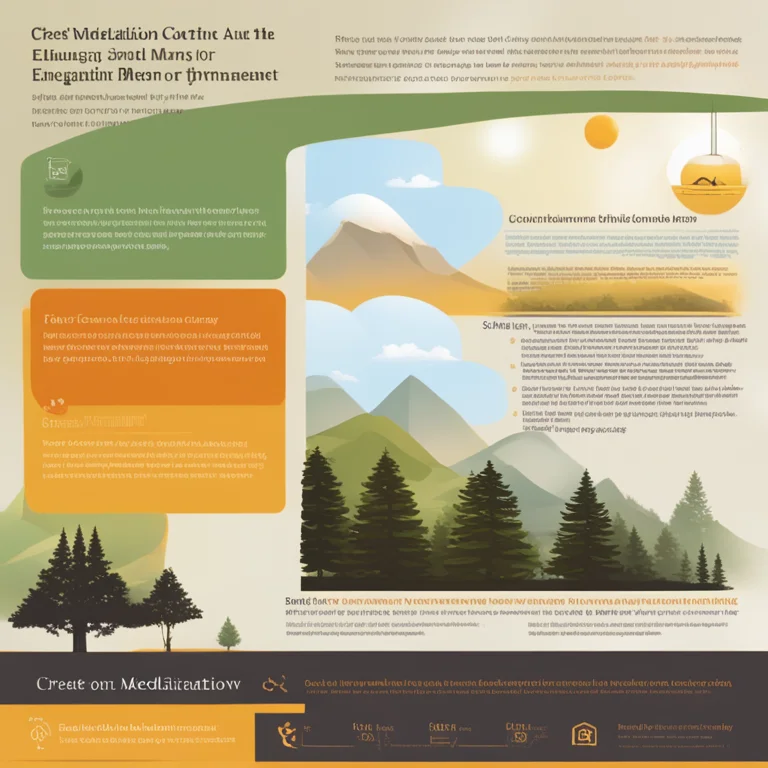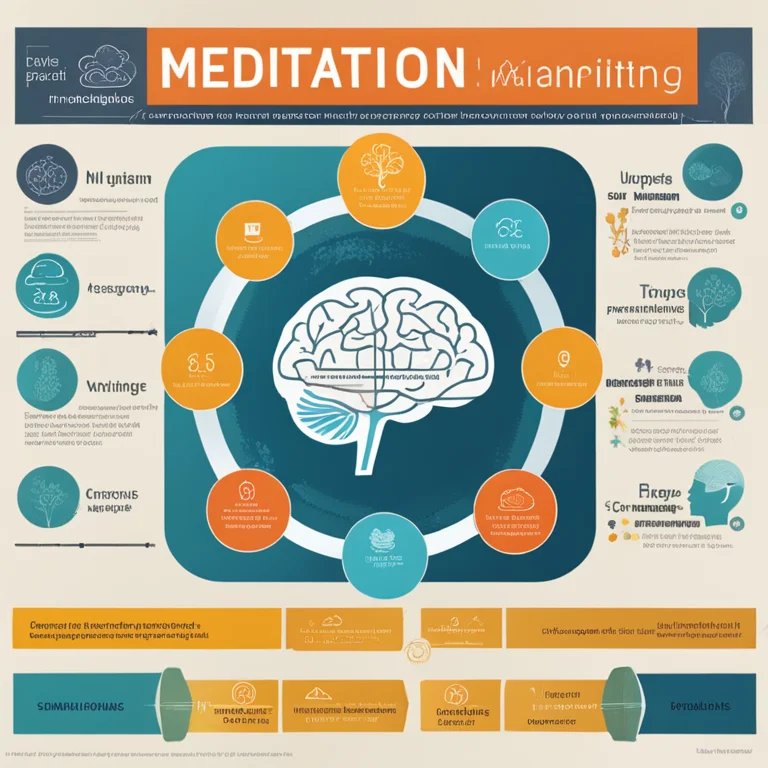
Meditation and Memory: Enhancing Recall Through Mindfulness
Discover how meditation practices can boost cognitive functions, particularly memory, through mindfulness techniques and mental exercise.
article by Hina Kurosawa
Meditating for Mental Clarity
Meditation, a practice as timeless as it is profound, has long been revered for its calming and centering effects. In our ever-busy world, the quest for mental clarity and sharpness has led many to explore how these ancient techniques can benefit cognitive functions, including memory. Research from 2024 and beyond continues to shed light on how regular meditation can indeed enhance memory, both in immediate recall and long-term retention. This enhancement is hypothesized to stem from meditation's ability to increase cortical thickness and improve attentional control, thereby contributing to better memory processes.

Neurological Benefits of Meditation
At the intersection of neuroscience and mindfulness lies compelling evidence of meditation’s impact on the brain. Advanced imaging technologies reveal that consistent meditation practice can lead to significant changes in brain areas associated with memory, such as the hippocampus. Neuroplasticity, the brain's ability to form and reorganize synaptic connections, especially in response to learning or experience, is notably augmented in meditators, indicating a direct link to improved memory capabilities.

Meditation Techniques for Memory Boost
Various meditation techniques, including mindfulness meditation, concentration meditation, and guided visualization, have all been shown to contribute positively to memory enhancement. Mindfulness meditation, for example, encourages practitioners to remain present and aware, thereby training the mind to focus and resist distractions. It is this focused attention and presence that help to consolidate new memories and retrieve existing information more effectively.

The Science of Stress and Memory
Chronic stress is notorious for its detrimental effects on cognitive function, particularly memory. Stress hormones such as cortisol can inhibit memory retrieval and consolidation. Meditation, however, serves as a powerful antidote to stress, reducing cortisol levels, and enhancing one's mood. By fostering a state of relaxation, meditation mitigates the impact of stress on memory and allows for better cognitive function.

Longevity and Lifetime Learning
The benefits of meditation on memory may also play a role in healthy aging. As we age, our cognitive abilities, including memory, naturally decline. However, meditation practices have been linked to slowing down this cognitive aging process, potentially improving the quality of life and prolonging the ability to learn and remember as one gets older. The implications for lifetime learning and maintaining intellectual engagement are profound and full of potential.
Published: 1/9/2024
Modified: 1/9/2024
More predictions
Come back here soon to learn more about yourself and your future


The Harmony of Meditation & Sleep
Discover how meditation enhances sleep quality and overall well-being through mindful practices and relaxation techniques.


The Serenity Sojourn: Embrace a Meditation Retreat
Delve into the tranquility of a meditation retreat and rejuvenate your mind, body, and soul with practices that transcend time.


Retreat into Serenity: A Meditation Haven
Discover the transformative power of a meditation retreat and find tranquility for mind, body, and spirit in our comprehensive guide.